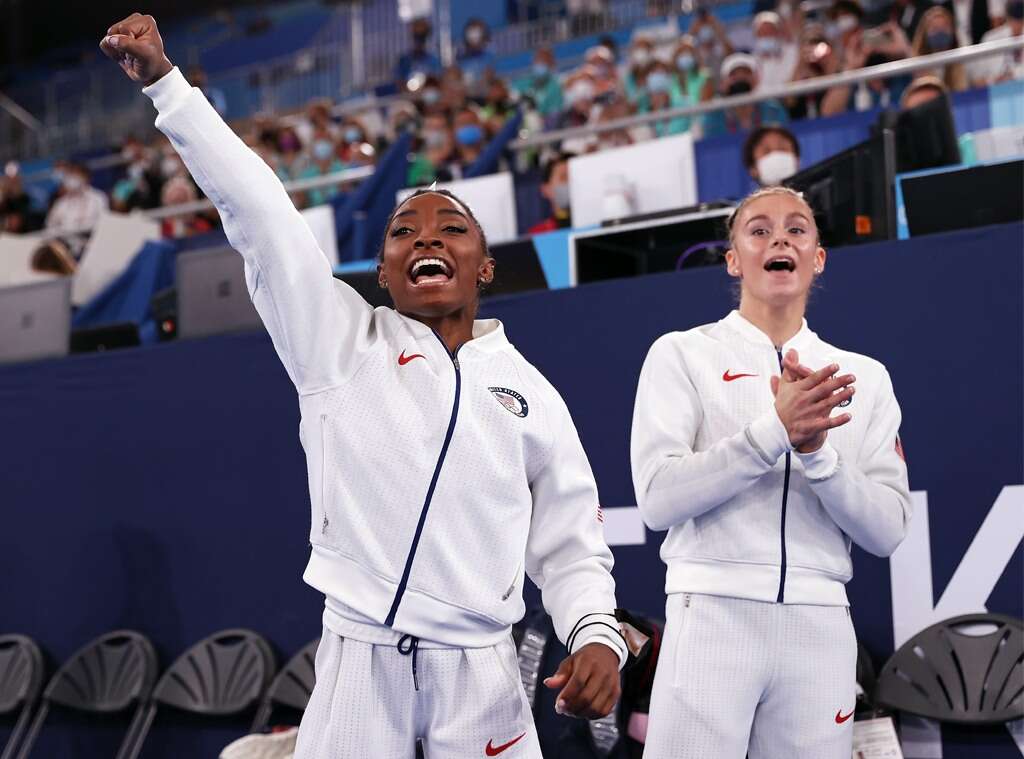
August is Grief Awareness Month and we’ve all just gotten an unexpected lesson in what a good grief process can be. Grief is the natural reaction to loss, and during the 2020 postponed Olympics, the much-heralded athlete Simone Biles was experiencing a major loss. Her mind, body and spirit were not working together as she had spent years training them to do, as they have done throughout the 20+ years of her smashingly successful gymnastics career. Imagine if she had had a stroke, or the onset of a movement disorder like Parkinson’s, there on the eve of her competing. What was happening was every bit as serious.
Everything played out publicly as we saw video footage of her falling from apparatus she normally gracefully dismounted, or over which her elegant body usually soared. Ms. Giles reported not being able to sense her body during midair movements known as “twistes,” and “Not knowing up from down.” How frightening. How disappointing the timing. But when would be a good time for this to be happening? How important to the grieving process it is to pay attention and not deny that this is happening, to not become angry at a body that is not obeying the usual commands, but to ask how can I take care of myself in this critical time?
How critically important to not push through and risk serious injury or death. “I had to focus on my mental health…We have to protect our minds and our bodies and not just go out and do what the world wants us to do.” I know a bit about the world of gymnastics, having had a daughter who competed in high school and a son who secured a college scholarship based on his natural talents and developed skills. I know the shaky pre-performance nerves of the athletes and the angst and breath-holding moments of the spectators, especially those like me who are related to the one performing.
The book I wrote about self-care contains a poem I wrote after attending one of my son Kevin’s college meets.
Hey Team, Falling is not a giant zap from the gods
meant to embarrass, humiliate, and hurt you,
but falling is one of the things that happens in the process of “going for it,”
as you move too close to your growing edge.”
With her vast experience Biles knew this wasn’t just normal nerves or performance jitters. She avoided letting her disappointment morph into depression and, in concert with her coaches and medical team, she made the rational decision to withdraw from the competition for what she hoped could be, a short period of time.
Meanwhile she knew that in the world of elite competitive athletics, the reaction she’d get would be based on the expectation that any true athlete will “go for it,” risk everything to win, no matter the risk to your own health, for the glory of your team, your country, and yourself. On that world stage stepping back to take care of oneself is seen as quitting– the greatest of cardinal sins. But Simone Biles did not quit. She refused. She refused to allow others’ expectations of her to interfere with what she knew she needed to do to take care of herself. And since the “keep going at all costs is only pardoned momentarily for physical illness, she knew that this dis-ease which is both mental and physical in nature, would not escape negative judgements and communal wrath.
Simone resisted– and resisting is a sign of resilience and strength. She resisted the cultural expectations that most all of us have experienced in our own fields of endeavor, where our own welfare takes second or third or fourth place to the good of our family members, our employers, our country, or the needs of whatever project we are working on.
I recognized this challenge to my own mental health and well being 30 years ago when I wrote the following affirmation that ended up on a wall in my office to remind me of new priorities and in my book on self-care to remind others.
“I am as important as any or all of my project, goals and accomplishments–past, present and future. I allow myself to be fully present to the task at hand, realizing that, whatever happens, I will learn from it.”
Getting back on the beam took courage, but not as much as all the other actions and lack of action that came before it. Easing back a bit from the most challenging moves ever done on a balance beam in deference to her body/mind’s current realities still merited a medal. It made mere mortal status an ok place to be.
During her time of recovery and non-competing at the Olympics, Simone showed up for her teammates as cheerleader and chief supporter. A sports announcer commented that she seemed as happy for her teammates as she had been for herself during her own victories.
That’s the thing about self-care that my co-author Christine Gautreaux and I teach people in our online self-care class for caregivers – it’s only when you take care of yourself that you can then be there for others as well.
Thank you, Simone for using your worldwide platform to demonstrate this lesson so well.

